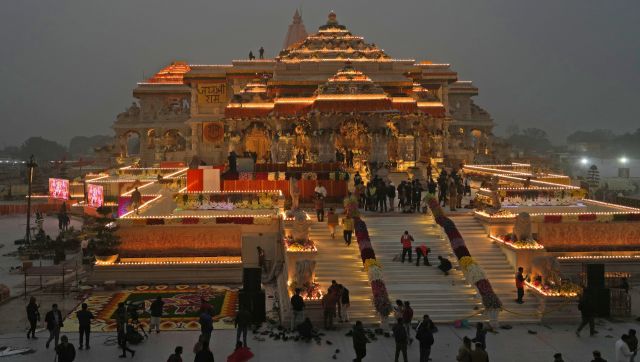Noted environmentalist Anupam Mishra wore many hats: he was an environmentalist, a journalist, an author and an authoritative voice in the field of water conservation in India. But after his demise, besides all these adjectives, he will be remembered as a true Gandhian ideologue and an effective communicator of his ideas, who emphasized on India’s ancient and traditional ways of water conservation.
Mishra, who belonged to Madhya Pradesh, died on Monday at the age of 68 after a long battle with cancer.
A Pune-based environmentalist and Mishra’s namesake Anupam Saraph, who came in touch with the late environmentalist in early 1990, says, “We came to know each other through a common friend, Joan Davis, Director of Water Research Institute in Zurich, who wanted us to meet as we shared the common name and had been working for a common cause. First, it was through postcards and then emails. Finally, we met after three years and our friendship continued till he breathed his last.”
Mishra had a witty and wise way to address any problem. He always used to look at issues with a different perspectives. He would use a mix of simple language and emotions to explain the gravity of water related issues with remarkable optimism.
“During the workshops that we attended together, I found a rare quality in him — he was an excellent listener who, instead of talking about his ideas or blowing his own trumpet, used to build up others’ perspective and present it with simplicity. The best way of paying tribute to Anupam would be to recognize his body of work and follow his ancient and traditional way of water conservation and rain water harvesting model, rather than blindly following modern technology,” Saraph said.
Mishra’s friends and associates remember him as a person, who never had any ego and believed in simple living based on Gandhian principles.
“Throughout his life, his lifestyle reflected commitment to Gandhian principles. In one word, he was truly Anupam (unique/incomparable in Hindi). I never saw him getting angry. Even when his views were being strongly opposed, he used to sweetly register his protest, and became ironical when he was sad,” said Ravi Chopra, Director, People’s Science Institute, Dehradun.
“What made him different from his fellowmen? It was his consistent hard work. He would go to the remotest parts of the country, where we couldn’t, to pursue his mission of water conservation. His uniqueness lay in appreciating the local and traditional ways of rain water harvesting and conservation of water bodies,” he said.
Mishra was highly influenced by his father Bhavani Prasad Mishra, a Gandhian poet and litterateur.
A recipient of Jamnalal Bajaj Award, Amar Shaheed Chandrashekhar Azad National Award and many others, Mishra was the editor of the bi-monthly ‘Gandhi Marg,’ published by the Gandhi Peace Foundation.
You don’t need money to protect environment; but you need to tell people about their tradition and they have to live up to it
Environmentalist Amla Ruia, Chairperson, Aakar Charitable Trust, which is also engaged in water conservation said, “It’s a great loss to India and to the cause of water conservation. He made immense contribution through his work, writing and guidance, and was a great human being.”
Referring to Mishra’s book titled Talab (Pond), which has been translated in many languages including French, Chopra said, “I owe a personal debt to him as I learnt so much from his works. I got immensely fascinated by his traditional ways of water harvesting.” Chopra feels that the country would miss Mishra’s sage advice on matters of environmental conservation.
“You don’t need money to protect environment; but you need to tell people about their tradition and they have to live up to it,” Chopra quoted Mishra as saying.
But, there is more to Mishra’s ideology.
Prof Anand Kumar, a leader of Swaraj Abhiyan and a close friend and associate for more than four decades, recalls Mishra’s staunch support to the anti-emergency movement and his association with Jayprakash Narayan.
“After his education from Delhi University, he got into Lohiya movement. He was close to Jaiprakash ji (Jaiprakash Narayan) and got to work with him in early 1970s during the surrender of dacoits. He wrote Chambal Mein Atmasamarpan (Surrender in Chambal), and through this work, people came to know about the historical contribution of JP."
Kumar also states that during the emergency, when Jaiprakash Narayan was shifted to Mumbai for treatment, Mishra had even organised a secret meeting with him and other fellows on anti-emergency movement, a fact very few people know about him.
Mishra also played an instrumental role in scripting India’s first State of Environment report in 1980.
“He was a multi-dimensional personality, an effective communicator, an unassuming and humble person with remarkable clarity on the state of water resources and rivers in India. In the last 20 years, he helped me in my mission without any inhibitions. He attended his last public function on 28 November that was organized by us. Despite his falling health, he spoke extensively with alertness and was well informed,” summed up Himanshu Thakkar, Coordinator, South Asia Network on Dams, Rivers and People (SANDRP), an organization working for water resource development.


)




)
)
)
)
)
)
)
)